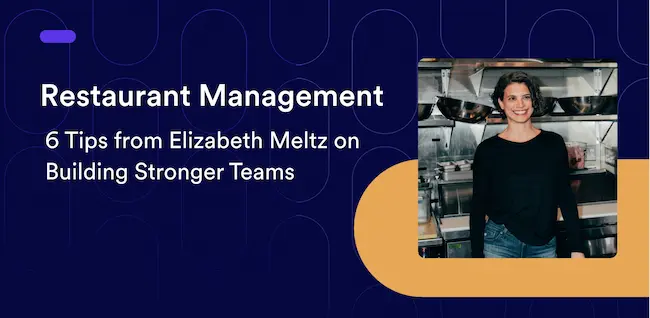Step into the world of artisanal cheese and you’ll undoubtedly stumble upon the legend of Mateo Kehler, the man who turned a rundown farm into the powerhouse known as Jasper Hill Farm.
In a riveting exchange on The meez podcast with Josh Sharkey, Mateo’s story unfolds like a gripping novel—a tale of determination, risk-taking, and a relentless pursuit of something greater.
The beginnings of Jasper Hill
The genesis of Jasper Hill is rooted in a heartfelt connection to the land and a deep-seated concern for the evolving landscape. Mateo and his brother Andy, former carpenters witnessing the erosion of their beloved Vermont community due to escalating real estate values, embarked on a bold yet uncertain path.
In 1998, they made a daring leap, investing their life savings in a rundown 200-acre farm, not because they knew what to do with it, but because it was a shot at finding “meaningful work, in a place that we love, with people that we love.” And thus, Jasper Hill was conceived—not as a cheese-making venture initially, but as a mission to save a disappearing way of life.
“We had no idea what we were going to do. We just knew that if we didn't do something, we were never going to be able to afford to live here. So we took a step back to try and really kind of see what it would be. The meaningful work part really kind of rose to the surface.
Mateo’s recounting of their journey is nothing short of an adventure.
Starting with $80,000 and a $230,000 loan, they dove headfirst into a business they barely understood. Their venture's trajectory didn't stem from a preconceived notion of cheesemaking. Instead, it sprouted from an innate need to preserve their paradise. Amid the decline of dairy farming, they envisioned a beacon—a farmstead cheese movement that would not just sustain livelihoods but invigorate a community.
“Dairy farming was in a steep decline. We very naively thought that if we could demonstrate that you could make a good living milking 50 cows on a rocky hillside farm, afford health insurance, put your kids through college, and save for retirement, that would just be like a game changer. And all our friends and neighbors here would just hop on this farmstead cheese bandwagon and it would be a movement.”

The path from purchasing a dilapidated farm to establishing a cheese facility was no easy feat.
It entailed several years of exploration, travel, and financial hurdles. Armed with limited expertise but unyielding determination, Mateo navigated the complexities of cheese production, learning from artisans across Europe and tirelessly penning a business plan to secure the necessary financing.
“It took us five years to understand what we wanted to do and to go out into the world. I went to Europe a few times and worked with cheesemakers in Britain and visited cheesemakers all over Italy, France, and Spain. I had to write a business plan and get it financed. It was a real stretch. As my brother Andy likes to say, we didn't know a teat from a telephone pole. So convincing a banker to lend us money to start a dairy farm, and then cheese on top of it, was a real stretch.”
At its core, Jasper Hill transcends mere cheese production.
Jasper Hill thrives as an organism, with people as the main ingredient. They are debt-financed, built on a conglomeration of businesses interwoven with about 85 families of businesses.
The farm embodies a culture of excellence fueled by a mission to champion quality, conserve the land, and rejuvenate a dwindling community. The work is bigger than any one individual and it takes everybody in the whole chain to demonstrate a commitment to a cause to succeed.
“We started with a mission statement, which was to be the standard bearers for quality and innovation in artisan cheese. And that's the driver for the second part, which is to develop the economic mechanisms for the conservation of the working landscape and our soil and water resources. We have an environmental mission. And a quality-of-life mission and a community-based philosophy that creates an immense amount of buy-in from the people who live and work here.
Jasper Hill's success is a testament to the transformative power of purpose-driven work.
Mateo's narrative underscores the palpable impact of their work—reviving a declining community, attracting individuals to the heart of Vermont, and fostering a vibrant, sustainable ecosystem. Their commitment to authenticity, environmental stewardship, and a community-centric philosophy has become the bedrock of their success.
“That meaningful work in the place that we love with people that we love is a thread that has enabled us to attract people from all over the country to move to, like the middle of the northeast kingdom. I call it the geographical center of the middle of nowhere, there are more people in every direction from where we are. It takes like really participating in the production of something authentic, primordial, and real. And that's what we do. We're like milking cows and milking goats and managing like grass and connecting consumers to something primordial and real.”
The pivotal partnership with Cabot Creamery.
Jasper Hill’s journey took an unexpected turn when Cabot Creamery approached the Kehler brothers, seeking to produce an English-style bandaged cheddar—a collaboration that seemed improbable in Jasper Hill’s nascent cheese-making journey.
“We never intended to do anything other than milk cows and make cheese and have a life on the land with our families. And then Cabot Creamery knocked on our door and asked if we would make for them a private label, English-style bandaged cheddar. This is like 2003, the year that we started making cheese.”
As Mateo recalled, they hadn’t even sold a scrap of cheese at this point. Instead of dismissing them, the two struck an unconventional arrangement. Cabot would make the cheese and Jasper Hill would ripen it. This pivotal decision birthed a partnership that transformed the trajectory of both companies.
After 18 months of R&D, Cabot came and picked up about 10,000 pounds of cheese, took it back to a warehouse in Williston, Vermont, and tried to sell it. However, the road was tumultuous.

Mold-covered cheese was misunderstood by customers and sales teams.
When attempts to sell this cheese faced rejection due to unfamiliarity with its unique characteristics, Mateo Kehler intervened. Despite initial sales of a mere five wheels over several months, Mateo offered assistance, leveraging the trust of their existing customers. Remarkably, within a short span, 10,000 pounds of Cabot Clothbound found a new market.
“We called all our friends and neighbors. San Francisco started aggregating, which was great for local cheesemakers, but it was a real service for our customers who now with one phone call could get ahold of 14 different cheeses, whereas before it was 14 different phone calls.”
Mateo saw suddenly that there was a business opportunity here, thus sprouting the initial idea of cellars at Jasper Hill. Like a line of credit where contracts were tied to volume. Companies like Cabot would pay Jasper Hill to ripen cheese, Jasper Hill would then sell cheese to customers, and Cabot would bill them 45 days after customers were invoiced.
“We paid them back the aging fees and we paid them back the cost of the green. In that way, we were able to scale up well. We built this crazy piece of infrastructure. It's like 22,000 square feet underground, seven vaulted tunnels. And you know, as our Cabot clothbound inventory grew, our monthly cash flow grew as well.”
Jasper Hill went from 25 wheels per month to 400 by December 2008.
However, amidst their soaring success, the economic downturn of 2008-2009 dealt a severe blow, challenging Jasper Hill’s resilience just as they were hitting their stride. In January 2009, they sold 32 Cabot clothbound and had another 400 wheels coming ripe. After another slow month, the whole enterprise was teetering at the edge of collapse.
While they had cash flow due to aging fees from Cabot, they began to hit a wall. To keep sales up, Mateo went and visited every single one of their customers across the country. And by June 2009, they had sold a thousand wheels.
“I learned that our customers are partners and co-creators of the future that we're building for our community here and invested in our success. Our customers knew it and they went along with us to help us figure out how to stabilize this thing that we had built. There are deep loyalties and a lot of deep appreciation that we feel for every customer who has supported us along the way. Ultimately, we wouldn't be here without them.”
The commitment wasn’t unilateral. Even in a frozen market, distributors, cheese shops, and restaurants rallied behind Jasper Hill, reiterating the collective commitment to weather the storm. This unified support buoyed Jasper Hill through the economic turmoil, safeguarding not just a business but a vision deeply rooted in community-centric ideals.
"Everybody went all in, even though nobody was in a position. I mean the market had just stopped. Nothing is moving. We had distributors that cut huge POs. And cheese shops and restaurants that doubled down. And we're here because of the commitment of a lot of people, both locally, but also out there in the world to hold us up and help us elevate cheese in the United States.”

The commoditization plaguing the dairy industry.
As the farm attracted cheese producers, it encountered an array of challenges even beyond a recession —microbiological complexities, texture inconsistencies, and a lack of commitment to quality among producers. This early phase taught a crucial lesson: in the realm of artisan cheese, there's no market for second-tier quality. To thrive in this space, unwavering commitment to consistent, high-quality production is paramount.
The complexity of cheese production begins long before the cheese-making process. It encompasses the intricacies of farm practices.
“The foundational microbial ecology of raw milk cheese is the sum of the practices on a farm and how you feed your cows, how you bed your cows, your water quality, your facility design, your milking protocol.”
Jasper Hill Farm's evolution is a testament to adaptability. Initially collaborating with local cheese makers, they've shifted focus over time to support dairy farmers battling against the onslaught of industrialization in the dairy industry.
Mateo highlighted the disparity between small-scale, community-focused farms and industrial mega-dairies—a stark imbalance where smaller farms struggle to compete. Jasper Hill Farm, in response, envisioned a unique mission—to build a pipeline channeling high-value products into affluent communities while redistributing the generated wealth within a 15-mile radius of Greensboro.
Their philosophy transcends mere profitability; it's centered on community welfare.
Every financial decision is intricately tied to maximizing the impact within their natural community, with an acute focus on depositing wealth back into the local economy.
“Profit is not the purpose. Profit serves the purpose. And in that sense, we're really looking at spending as much money, depositing as much money within our community, and building as much wealth here as we can. And cheese is just the way we do that. "
Jasper Hill Farm stands not just as a cheese producer but as a beacon of hope—a reminder of the transformative potential that lies within a commitment to quality, community, and sustainable economic practices. It epitomizes the spirit of preserving traditions, supporting local communities, and crafting a resilient and thriving ecosystem—where each wheel of cheese spun is a testament to a shared vision of greatness, sustainability, and community-driven progress.
Listen to our full conversation with Mateo Kehler on The meez Podcast


%20(1).png)

.webp)



